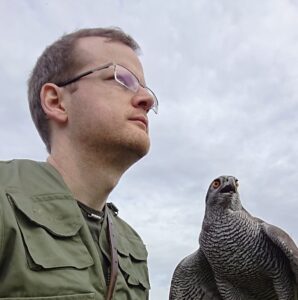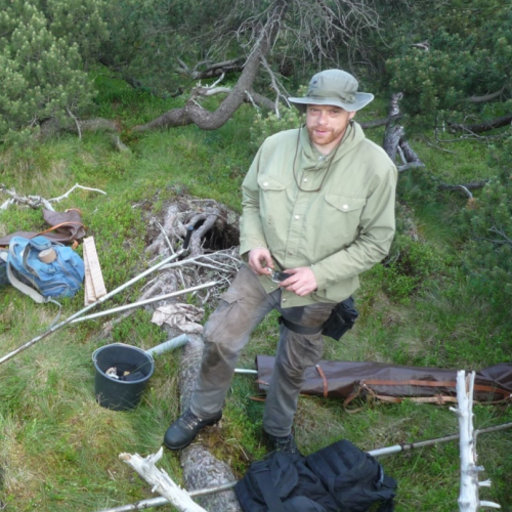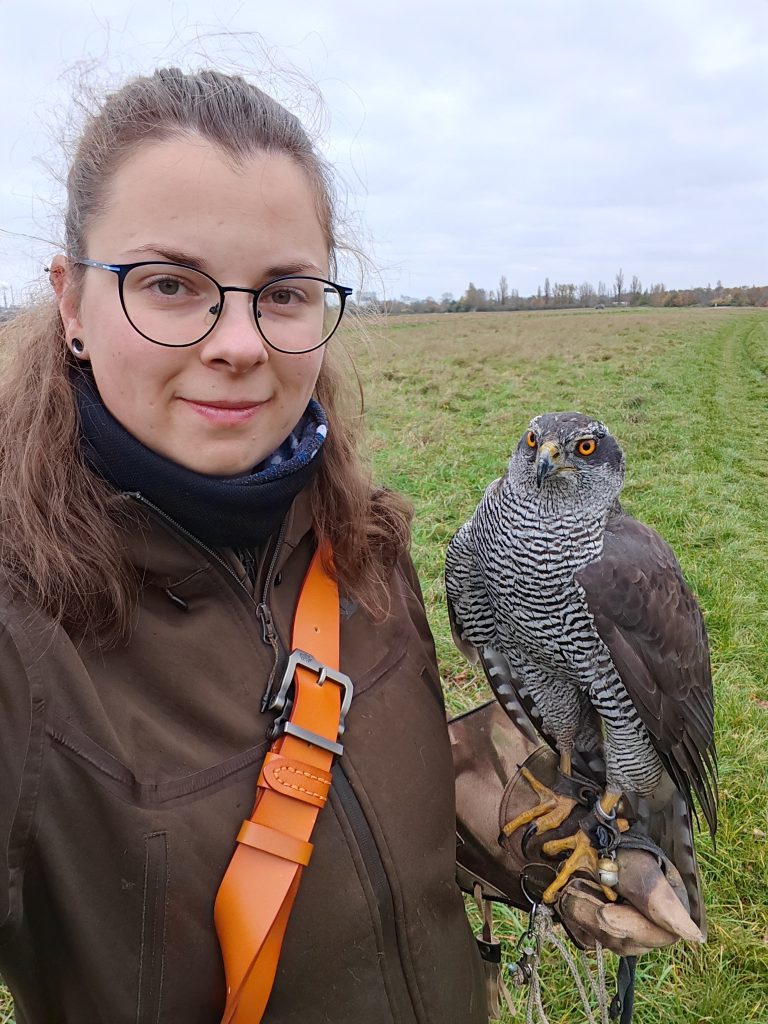Our Team

Dr. Andreas Wittke, founder of the Society for Raptor Conservation Initiative, combines the expertise of a geoscientist with a focus on (isotope) geochemistry and (paleo-/geo-)biology with that of a falconer. He draws on over 20 years of practical experience working with birds of prey. Animal, species, and nature conservation have always been important to him, while also placing great emphasis on educational and public relations work to sustainably raise awareness of species conservation.
His guiding principle is the quote from Konrad Lorenz:
“You only protect what you love – you only love what you know.”
In addition, his work is strongly inspired by Bernhard Grzimek’s commitment to Africa’s wildlife and shaped his passion for this diverse and fascinating continent and its flora and fauna.
Andreas discovered his passion for these fascinating animals at a young age and gained valuable experience through volunteer work at a bird of prey center. There, he came into contact with these fascinating animals and cared for a variety of birds of prey, including falcons, vultures, and owls. Despite his specialization in these majestic birds, all other animal species are equally dear to his heart.
Since 2022, he has also been responsible for species conservation projects within the Association of German Falconers – Association for Falconry and Bird of Prey Protection – Rhineland-Palatinate/Saarland Regional Association (VDF RLP/SL) and is actively involved in the protection of native birds of prey, falcons, and owls, as well as other game. Since 2024, he has served as Chairman of the VDF RLP/SL and is contributing to the preservation of the intangible cultural heritage of falconry.
He observes the situation for predatory birds in sub-Saharan Africa with great concern.
“Birds of prey, falcons, vultures, and owls face major challenges, especially in sub-Saharan Africa. These impressive, majestic animals are suffering from habitat destruction and a decline in prey due to intensive agriculture, pesticides, and human infrastructure. Because predatory birds are high up in the food chain, toxins and pollutants accumulate in these animals, making them highly vulnerable to poisoning. They have been systematically persecuted and hunted in the past and continue to be so today. The reasons for this are varied: from superstition and human greed to the false perception that they are ‘food competitors’ or even ‘pests.’ In addition, they often fall victim to poison bait intended for other animals, such as lions, as collateral damage.
Africa is not only important for sedentary bird species, but also for European and even Asian migratory birds. Effective protection cannot therefore end at national borders. If we protect our birds in Germany If we protect Europe and Europe but leave Africa out, we are letting them down.
The drastic decline in populations, especially in sub-Saharan Africa, makes me fear that some species of birds of prey, falcons, and vultures in Central Africa will become irretrievably extinct in just a few years. Unfortunately, these fascinating animals lack the “cuteness factor,” which is why they are overshadowed by charismatic species such as elephants, giraffes, rhinos, pandas, and big cats, and unfortunately receive little attention, especially when it comes to conservation projects and public relations.
I want to change this, and this was my motivation for founding the Raptor Conservation Initiative Africa. I want to ensure that these impressive predators are not only protected, but also recognized and promoted in their fascinating diversity and importance to ecosystems.”

The Raptor Conservation Initiative is supported by Dr. Hannes Knapp, a biologist who is always out in the field. His studies focused on the ecology and evolution of animals and plants, as well as geology. One focus of his work has always been the study of the interaction between humans and the environment.

As a trained chemical laboratory technician, Laura Isabelle Englert has always had a keen interest in nature and its connections, and she developed a passion for birds of prey at an early age. Since 2022, she has been a trained falconer and volunteers for public relations and assists with nature and species conservation projects at the VDF Rhineland-Palatinate/Saarland.
Her mission statement:
“Everything is connected.”
This becomes even clearer when you consider the birds of prey in Africa. It may sound far-fetched to some at first. But many native birds of prey, such as the lesser spotted eagle and the common hobby, are migratory birds and migrate to Africa for the winter. Montagu’s harrier, black kite, kestrel, and honey buzzard are also long-distance migrants.
If they die in Africa, they never return to us and are missing from both our ecosystem and the entire natural cycle. Even if climate change means fewer birds of prey migrate in winter, many are still affected.
Therefore, species conservation is not only very important and essential on our own doorstep, but also in the places where the species live.
This is also the case in Africa.
